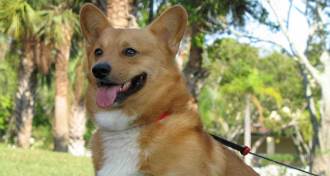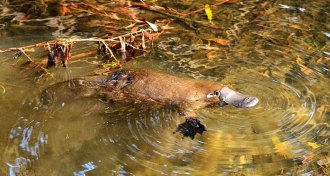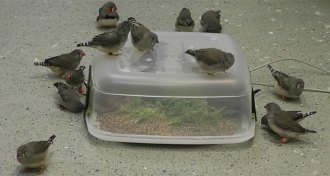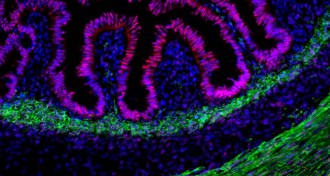Search Results for: Dogs
Skip to resultsCan’t find what you’re looking for? Visit our FAQ page.
4,011 results for: Dogs
-
 Neuroscience
NeuroscienceDogs’ brains may process speech similar to humans’
When it comes to interpreting human speech, dogs may have brain-hemisphere biases similar to people’s.
-
 Animals
AnimalsPlatypuses are full of mystery
With duck bills, webbed feet and venomous spikes, platypuses are one of the weirdest animals you’ll ever be lucky enough to see.
-
 Earth
Earth‘Mass Extinction’ vivifies the science of die-offs
The dinosaurs were killed off some 65 million years ago after a colossal asteroid struck Earth. But what many people probably don’t know is how paleontologists came to that conclusion. "Mass Extinction: Life at the Brink" tells that story.
By Erin Wayman -
 Animals
AnimalsDog disease threatens Siberian tigers
Canine distemper virus poses a particular danger to small groups of the big cats.
-
 Tech
TechDesigning robots to help in a disaster
Ideally, robots could take over for human crews in disaster zones. But seemingly simple tasks, such as walking, communicating and staying powered up, still pose big challenges.
By Meghan Rosen -
 Neuroscience
NeuroscienceFor a friendlier zebra finch, just add stress
Adding stress hormones to the diet of developing zebra finches produced birds that were social butterflies.
-
 Genetics
GeneticsGene variant helps dog evade muscular dystrophy
A dog that has a mutation causing muscular dystrophy has another genetic variant that appears to counteract the disease.
-
 Health & Medicine
Health & MedicineTiny human intestine grown inside mouse
Human gut tissue transplanted into a mouse can grow into a working intestine that doctors could use to test disease treatments.
By Meghan Rosen -
 Microbes
MicrobesMicrobes can redeem themselves to fight disease
With some genetic engineering, bacteria can morph from bad to good and help attack invading cancer cells.
By Susan Gaidos -
 Animals
AnimalsMama deer respond to the cries of human babies
Deer mothers approached a speaker playing distress calls of young mammals when the frequency fell into the same range as fawns.
-
 Animals
AnimalsA brief history of animal death in space
The Russian “sexy space geckos” join a long list of creatures that have died after humans sent them into space.
-
 Plants
PlantsClimbing high to save a threatened West Coast plant
A group of scientists hopes to save a cliff-hugging plant threatened by invasive grasses, drought and fire in California’s Santa Monica Mountains.
By Nsikan Akpan